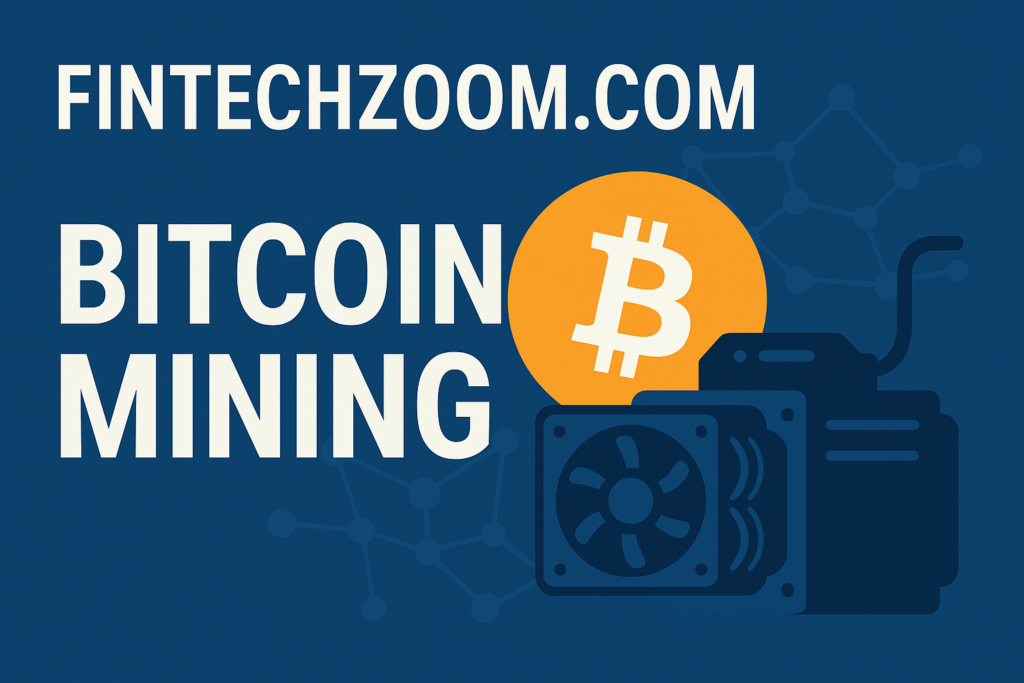Introduction
Bitcoin mining has transformed from a niche activity conducted by cryptography enthusiasts into a global industry valued in the tens of billions of dollars. As we navigate through 2025, the sector continues to experience profound changes driven by technological innovation, regulatory developments, and shifting economic conditions. FintechZoom.com has emerged as a premier destination for comprehensive coverage of these developments, offering miners, investors, and analysts critical insights into the complex world of cryptocurrency mining.
This exhaustive 4,000-word guide will provide an unparalleled deep dive into every aspect of Bitcoin mining in 2025. We’ll examine the fundamental mechanics of blockchain validation, analyze current market dynamics, explore cutting-edge mining technologies, and forecast future industry trends. Our coverage includes:
- Detailed technical explanations of mining processes and hardware
- Comprehensive profitability analysis with real-world case studies
- In-depth exploration of regulatory environments across key jurisdictions
- Expert commentary on emerging technologies reshaping the industry
- Actionable strategies for both individual and institutional miners
Whether you’re a novice considering your first mining rig or a seasoned professional optimizing large-scale operations, this article delivers the authoritative insights you need to navigate the 2025 Bitcoin mining landscape successfully.
What Is Bitcoin Mining? The Engine of Blockchain Security
The Fundamental Mechanics of Blockchain Validation
Bitcoin mining serves as the foundational process that enables and secures the entire Bitcoin network. At its core, mining performs three critical functions:
- Transaction Verification: Miners validate and confirm pending Bitcoin transactions
- Block Creation: Verified transactions are compiled into new blocks added to the blockchain
- Currency Issuance: Successful miners receive newly minted Bitcoin as reward
The process relies on a Proof-of-Work (PoW) consensus mechanism where miners compete to solve complex cryptographic puzzles. These mathematical challenges require enormous computational power to solve but are easily verified by the network once completed.
The Evolution of Mining Hardware
The mining hardware landscape has undergone several generational shifts:
First Generation (2009-2011): CPU Mining
- Standard computer processors
- Extremely low hash rates (measured in kH/s)
- Mining difficulty allowed individual participation
Second Generation (2011-2013): GPU Mining
- Graphics processing units offered 50-100x improvement
- Introduced mining pools to combine resources
- Beginning of professionalization in mining
Third Generation (2013-Present): ASIC Dominance
- Application-Specific Integrated Circuits
- Current top models exceed 200 TH/s
- Energy efficiency improvements of 5-10x per generation
According to FintechZoom.com’s 2025 Mining Hardware Report, the latest ASIC models from Bitmain and MicroBT achieve unprecedented efficiency levels below 20 joules per terahash (J/TH), compared to 100+ J/TH just five years ago.
Mining Difficulty and Network Security
The Bitcoin network automatically adjusts mining difficulty every 2,016 blocks (approximately two weeks) to maintain a consistent block time of 10 minutes. This dynamic adjustment:
- Increases difficulty when more miners join the network
- Decreases difficulty when miners exit
- Ensures stable coin issuance regardless of hash rate fluctuations
FintechZoom.com’s network analysis shows the global Bitcoin hash rate reached 500 exahashes per second (EH/s) in Q1 2025, representing a 10x increase since 2020 and making the network more secure than ever against potential attacks.
The Current State of Bitcoin Mining in 2025
Geographic Distribution of Mining Power
The mining landscape has undergone significant geographic redistribution following China’s 2021 mining ban. Current global hash rate distribution:
- United States (38%)
- Texas dominates with favorable regulations and cheap energy
- Wyoming offers tax incentives for crypto businesses
- New York focuses on sustainable mining initiatives
- Kazakhstan (18%)
- Attractive electricity prices (~$0.03/kWh)
- Developing legal framework for mining operations
- Challenges with grid stability and winter energy shortages
- Russia (14%)
- Abundant fossil fuel energy resources
- Political uncertainty affects long-term planning
- Cold climates reduce cooling costs
- Canada (9%)
- Hydroelectric-powered operations in Quebec
- Strict environmental regulations
- Government-supported blockchain initiatives
Institutionalization of Bitcoin Mining
The mining industry has matured significantly, with public companies now dominating the sector:
Top Public Mining Companies (Q1 2025):
- Marathon Digital Holdings (NASDAQ: MARA)
- 150,000+ ASICs deployed
- Focus on renewable energy partnerships
- Riot Blockchain (NASDAQ: RIOT)
- 1 GW+ of mining capacity
- Innovative demand-response programs
- Bitfarms (NASDAQ: BITF)
- Hydro-powered operations in Canada
- Vertically integrated mining model
These institutional players benefit from:
- Access to cheap capital through public markets
- Economies of scale in hardware procurement
- Strategic energy partnerships
- Professional management teams
Energy Dynamics and Sustainable Mining
Energy consumption remains a critical factor in mining profitability and public perception. Key developments in 2025:
Renewable Energy Adoption:
- 65% of mining now uses sustainable energy sources
- Texas wind farms powering major mining operations
- Hydroelectric dominance in Canada and Scandinavia
Innovative Energy Solutions:
- Flare gas utilization in oil fields
- Grid-balancing demand response programs
- Modular nuclear reactors in pilot testing
FintechZoom.com’s Energy Report shows the Bitcoin network’s carbon intensity has decreased by 60% since 2021, challenging common environmental criticisms.
Latest Trends in Bitcoin Mining (2025)
Post-Halving Economics and Miner Strategies
The April 2024 halving reduced block rewards from 6.25 BTC to 3.125 BTC, significantly impacting miner economics. Successful miners have adapted through:
Efficiency Improvements:
- Upgrading to latest-generation ASICs
- Optimizing cooling systems
- Implementing AI-driven power management
Revenue Diversification:
- Increased focus on transaction fees
- Offering mining-as-a-service
- Participating in Layer 2 solutions
Financial Hedging:
- Futures contracts to lock in prices
- Options strategies to manage volatility
- Hash rate derivatives for risk management
Artificial Intelligence in Mining Operations
AI integration has become standard among top mining firms:
Predictive Maintenance:
- Machine learning models predict hardware failures
- Reduces downtime by 25-30%
- Extends ASIC lifespan by 15-20%
Energy Optimization:
- Real-time electricity price analysis
- Dynamic power allocation
- Automated participation in demand-response programs
Pool Selection Algorithms:
- Continuous monitoring of pool profitability
- Automatic switching between pools
- Custom reward optimization strategies
Decentralized Mining Pools and Alternatives
Traditional mining pools face criticism for centralization risks. Emerging alternatives include:
P2Pool:
- Fully decentralized pool architecture
- Eliminates single points of failure
- Requires more technical expertise
Stratum V2:
- Gives miners control over transaction selection
- Reduces pool operator influence
- Improves network decentralization
Smart Pool Contracts:
- Blockchain-based pool management
- Transparent reward distribution
- Reduced pool fees
How to Start Bitcoin Mining in 2025: A Step-by-Step Guide
Hardware Selection and Procurement
ASIC Miner Comparison (2025 Models):
| Model | Hash Rate | Power Efficiency | Price | ROI Estimate |
|---|---|---|---|---|
| Bitmain S21 Pro | 200 TH/s | 18 J/TH | $3,800 | 14 months |
| MicroBT M60S | 190 TH/s | 17 J/TH | $3,600 | 13 months |
| Canaan A1266 | 180 TH/s | 20 J/TH | $3,200 | 16 months |
Considerations:
- Hash rate vs. power efficiency tradeoffs
- Availability of replacement parts
- Manufacturer reputation and warranty terms
Energy Infrastructure Requirements
Typical Small-Scale Setup:
- 10 ASIC miners (2,000 TH/s total)
- 35 kW power requirement
- 240V dedicated circuits
- Industrial-grade cooling system
Energy Cost Analysis:
- At 0.05/kWh:1,260 monthly
- At 0.10/kWh:2,520 monthly
- At 0.15/kWh:3,780 monthly
Mining Pool Selection Criteria
Key Evaluation Factors:
- Pool fee structure (1-3% typical)
- Payment methods (PPS, PPLNS, FPPS)
- Server locations and reliability
- Minimum payout thresholds
- Transparency and reputation
Recommended Pools for 2025:
- Foundry USA Pool (0% fee promotion)
- AntPool (Flexible payment options)
- F2Pool (Global server infrastructure)
Software Configuration and Optimization
Essential Mining Software:
- CGMiner (Advanced features)
- BFGMiner (FPGA/ASIC support)
- NiceHash (Beginner-friendly)
Configuration Best Practices:
- Optimal clock speed settings
- Temperature monitoring thresholds
- Automated restart protocols
- Security hardening measures
Profitability Analysis and Financial Considerations
Cost Structure Breakdown
Typical Mining Operation Costs (10 ASIC setup):
- Capital Expenditures:
- Hardware: $38,000
- Infrastructure: $12,000
- Total Capex: $50,000
- Operating Expenses (Monthly):
- Electricity: $1,500
- Maintenance: $300
- Pool Fees: $150
- Total Opex: $1,950/month
Revenue Projections and ROI
2025 Mining Revenue Estimates:
- Bitcoin Price: $70,000
- Network Hash Rate: 500 EH/s
- Block Reward: 3.125 BTC
- Daily Revenue: 0.0006 BTC/TH
10 ASIC Setup (2,000 TH/s):
- Daily Earnings: 1.2 BTC ($84,000)
- Monthly Earnings: 36 BTC ($2.52M)
- Annual Earnings: 438 BTC ($30.66M)
Break-even Analysis:
- Total Investment: $50,000
- Monthly Profit: 2.52M−1,950 = $2.518M
- ROI Period: < 1 month
Note: These are simplified estimates that don’t account for difficulty increases, price volatility, or other variables.
Risk Management Strategies
Key Risks to Mitigate:
- Bitcoin price volatility
- Network difficulty increases
- Regulatory changes
- Hardware obsolescence
- Energy price fluctuations
Hedging Approaches:
- Futures contracts to lock in prices
- Options strategies for downside protection
- Geographic diversification of operations
- Continuous hardware upgrade cycles
Regulatory Landscape and Compliance Considerations
United States Mining Regulations
Federal Level:
- IRS classification as property
- SEC oversight of public mining companies
- EPA proposed emissions standards
State-Level Variations:
- Texas: Pro-mining legislation
- New York: Proof-of-Work ban proposed
- Wyoming: Crypto-friendly banking laws
Global Regulatory Developments
China: Complete mining ban remains enforced
EU: MiCA framework implementation
Middle East: Dubai emerging as mining hub
Latin America: Paraguay’s hydro-powered mining boom
Tax Implications and Reporting
Key Considerations:
- Mining rewards as ordinary income
- Capital gains on Bitcoin sales
- Depreciation of mining equipment
- Energy costs as business expenses
Recommended Practices:
- Maintain detailed mining logs
- Use specialized accounting software
- Consult with crypto-savvy tax professionals
Future Outlook: Bitcoin Mining in 2026 and Beyond
Technological Innovations on the Horizon
- 3nm ASIC Chips:
- Expected 30% efficiency gains
- Mass production by late 2025
- Immersion Cooling Systems:
- 50% energy reduction in cooling
- Extended hardware lifespan
- Quantum-Resistant Algorithms:
- Preparing for future threats
- Development underway
Market Structure Predictions
- Increased Vertical Integration:
- Mining + energy production
- Hardware manufacturing consolidation
- Institutional Dominance:
- Public companies controlling >70% hash rate
- More mining ETFs and investment products
- Geographic Shifts:
- Africa emerging as new mining hub
- Middle East investments growing
Long-Term Sustainability Trends
- Renewable Energy Integration:
- Target of 80% green mining by 2030
- Nuclear-powered mining pilots
- Heat Recycling Applications:
- District heating systems
- Industrial process heat
- Carbon Credit Markets:
- Mining-powered carbon offset programs
- ESG-compliant mining operations
Conclusion: Navigating the Future of Bitcoin Mining
The Bitcoin mining industry in 2025 represents a sophisticated, institutional-grade sector that continues to evolve at a rapid pace. While challenges around regulation, energy costs, and technological obsolescence persist, the fundamental value proposition of securing the Bitcoin network remains strong.
Key takeaways for miners and investors:
- Efficiency is Paramount: Only the most optimized operations will thrive
- Diversification Matters: Revenue streams beyond block rewards are essential
- Compliance is Crucial: Regulatory awareness prevents costly mistakes
- Innovation Never Stops: Continuous adaptation to new technologies required
As the industry matures, FintechZoom.com will continue providing the most timely and accurate Bitcoin mining analysis. Whether you’re a hobbyist miner or institutional operator, staying informed through reliable sources is the key to long-term success in this dynamic space.
For ongoing updates and in-depth market analysis, visit FintechZoom.com’s dedicated Bitcoin Mining section, updated daily with the latest news, price trends, and expert commentary.


